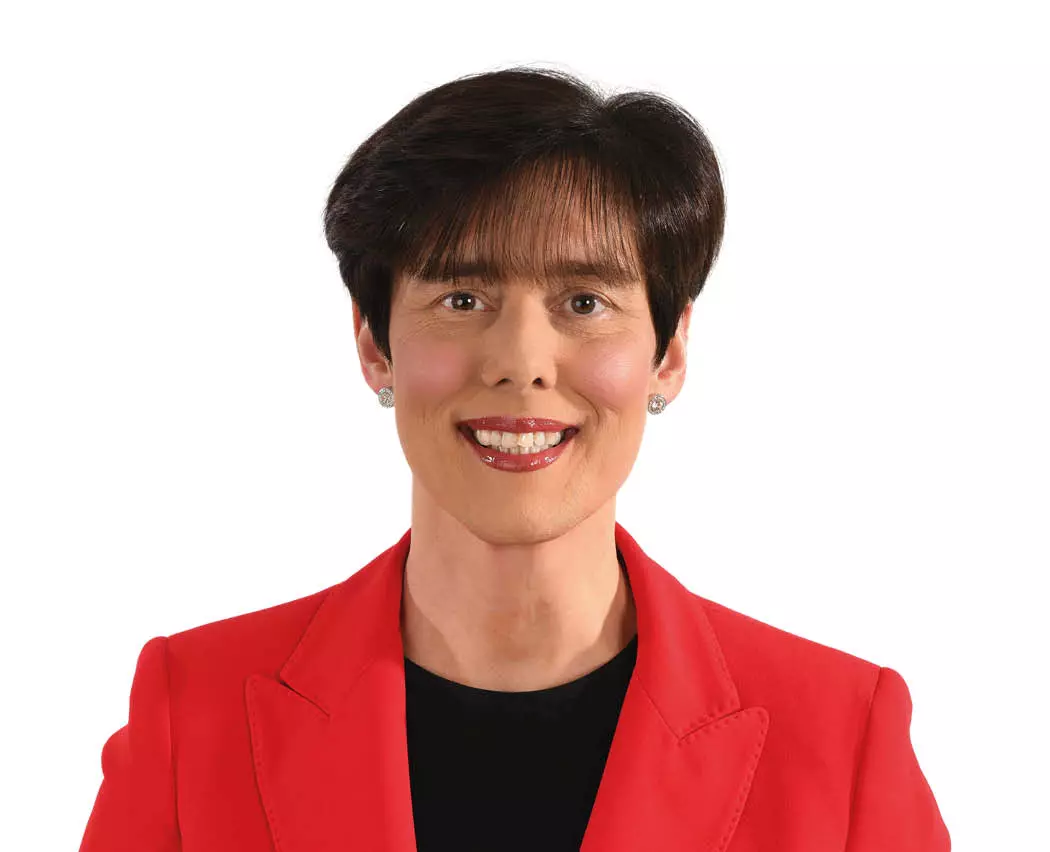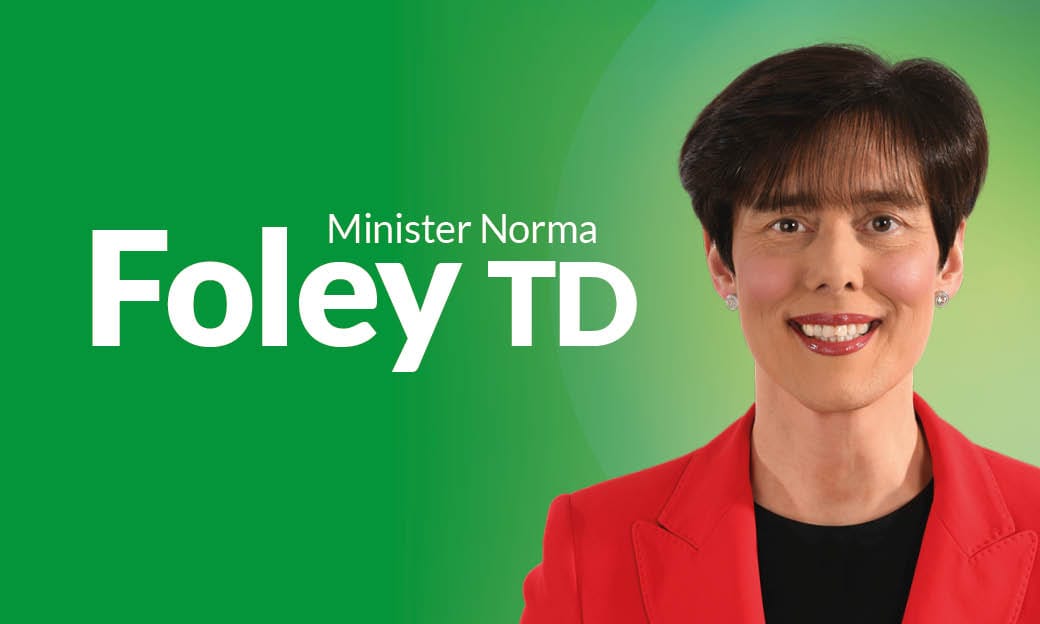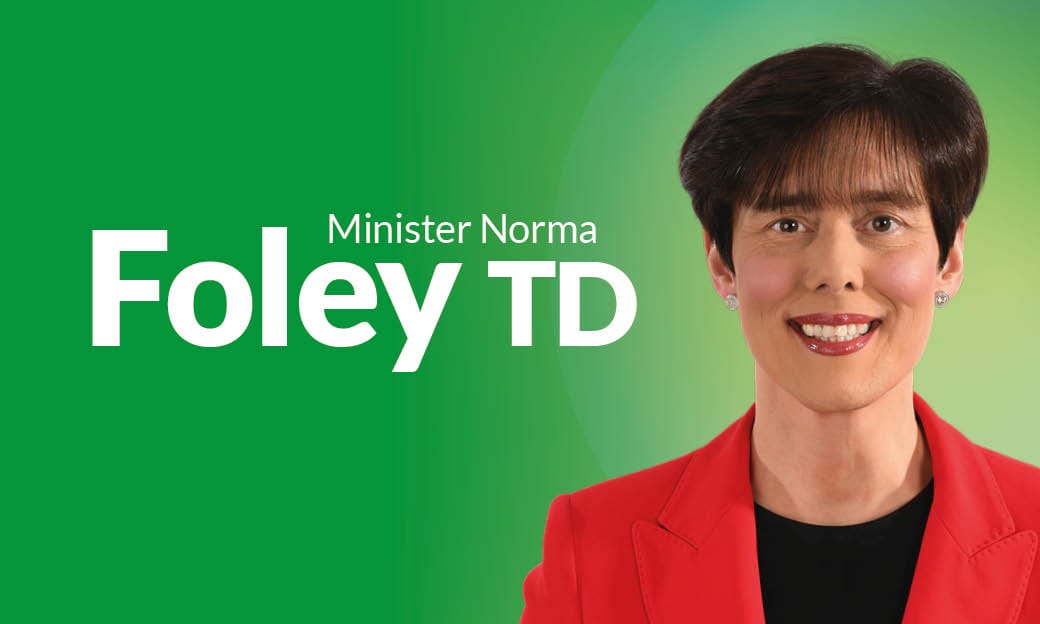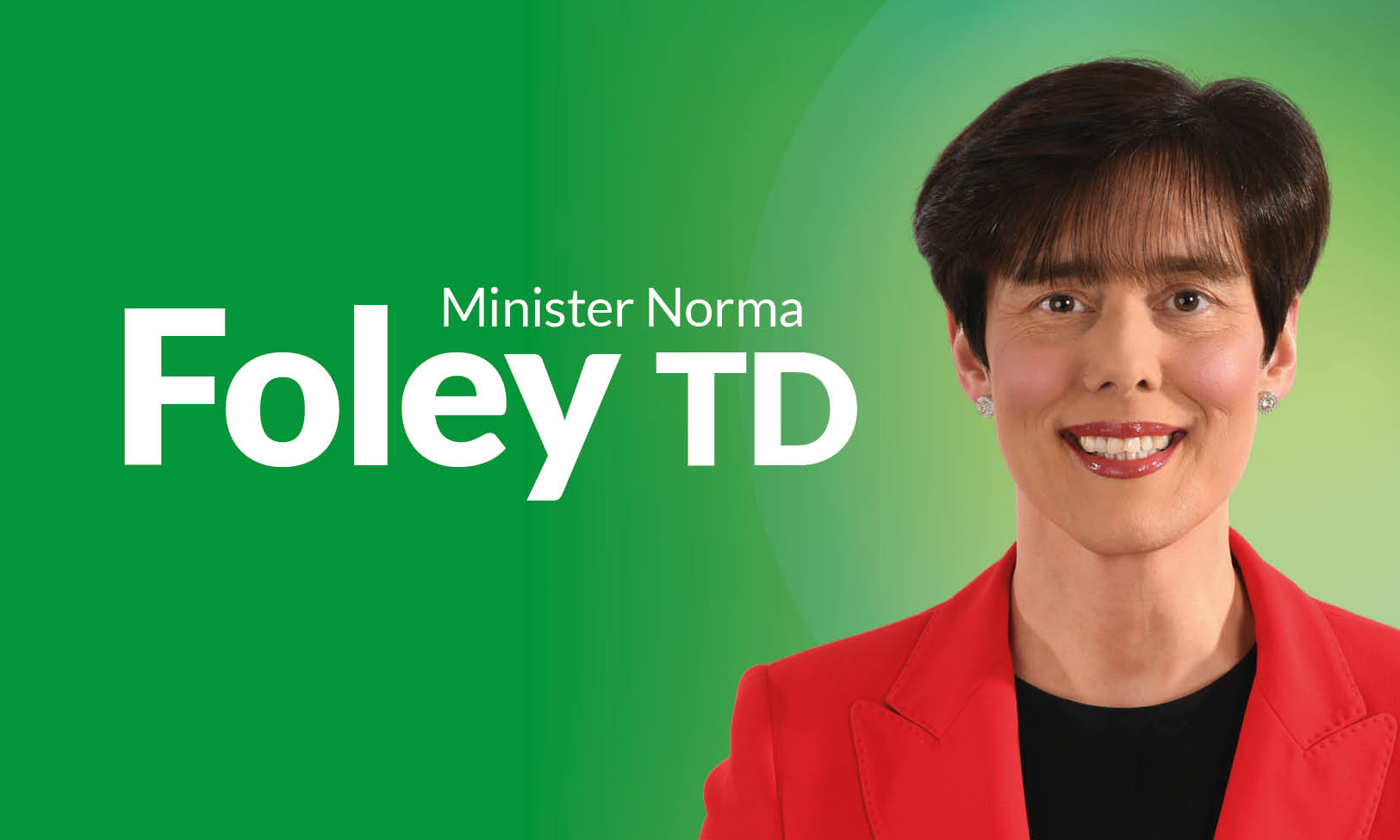Speech by Minister for Education Norma Foley TD at the 82ú Ard Fheis
Published on: 13 April 2024
Delegates, I am delighted to be here with you at the 82nd Ard Fheis. I love Fianna Fáil Ard Fheiseanna and I have got to tell you, I've never missed one Ard Fheis. My mother always tells me that she brought me to my first Ard Fheis in the carry cot. And I never missed one since. I didn't even miss it the weekend I got married because I had the great good fortune that on that occasion, it was held in Killarney. There's a very strong Kerry contingent here today and I have got to tell you, we yearn for a return, for a Fianna Fáil Ard Fheis to be held in Killarney.
I do want to say that all of us here are totally invested in education and we serve education in a variety of different ways, whether people are working as teachers or SNA, or school principals, deputy principals, so many people on boards of management, school secretaries, school caretakers and the wider family in education.
Whether you are parents or grandparents or guardians, there is an enormous investment by people in this country in the world of education, and I think that has truly served us well. There's a great priority given to education and enormous respect for it and I would like to think that will remain going forward.
A Fianna Fáil Ard Fheis provides us with an opportunity to come together as as a Fianna Fáil family. We like to take the time to reflect on all that we have done in terms of service to our communities, to our counties and indeed to our country. But more importantly, we bring a razor-like sharpness to our determination to achieve more into the future, for our communities, for our counties and for our country.
And we're doing that specifically in the area of education. I've held the office of Minister of Education for four years now and it has been an extraordinary privilege to serve as a minister for education. I have been fortunate to receive my seal of office not once, not twice, but three times in presence from President Higgins. But on each occasion that I would visit Arás an Uachtaráin, it reminds me once again of the importance of focusing on all things necessary and all things we need to achieve in education as has been achieved by my Fianna Fáil predecessors who put an enormous priority on education.
When we look back at some of the highlights in terms of what we've achieved in education, in the first instance I can tell you that the budgets and money that have been made available to education have increased enormously over the last four years.
When I came into office, the education budget was €8.6 billion. This year the budget is up to a record €10.6 billion.
Over the last number of years, an additional 8,000 teachers and 6,000 special needs assistants have been brought into the system.
We also managed, over the course of three budgets, to bring down the pupil: teacher allocation ratio to an average of 1 classroom teacher for every 23 pupils in all primary schools for the current school year. That is the lowest ever seen at primary level.
So we have spent our time over the last three to four years, increasing budgets, increasing staffing, increasing opportunities, and decreasing the pupil teacher ratio. That's just some of the work that we have done.
I often ask schoolchildren during my school visits how many schools there are.
We have 4,000 schools with one million students in them. nd I know from my own experience, one of the key concerns for parents and guardians is that they want to be sure that their children in school are safe, that they're happy and that they are welcomed. This is their primary concern. They're interested in their education. They want them to achieve but they want them to be safe and happy in school. We do know that our schools are places of welcome and places of safety and security, but we do know also that on occasion, there can be instances of bullying. For too long, people have not wanted to address that and not wanted to speak about it. But it is important.
We know that students can be afraid to tell their teachers, their classmates and their parents about what is really going on. It can rob a child or young person of their happiness and satisfaction, often causing lifelong damage for them. That is why my department has made a hugely determined effort to ensure that we take this issue on and that we will ensure that no child feels isolated as a consequence of bullying
We have a very good Cineáltas action plan on bullying, which we are implementing step by step. Cineáltas is the Irish word for kindness. It is designed to create a school environment where students and staff support each other and look out for each other.
International research shows us that the best way to tackle any aspect of bullying - a whole school atmosphere. We can all remember a time in school when someone was kind to us, when someone invited us in. But we can also remember a time when we were excluded. So what we're seeking to achieve here is a solidarity of welcome and support and inclusion in our school. And so this week, I announced a series of new modules designed to prevent and address bullying. These modules will be rolled out in schools in September 2024 as part of the Cineáltas plan.
These modules have been created by the Anti-Bullying Centre in DCU and have been successfully piloted in a large number of schools across the country. Now we are going to roll them out to more schools.
Another measure under the Cineáltas plan is the development of a national database to facilitate bullying data being collated in an anonymised manner. This data would be used for annual national report on bullying in schools. Schools will be given a clear briefing on the extent of the bullying data required so that they are aware of what incidents should be reported.
If the issue of bullying is to be tackled, it must be understood. This database will allow us to do that. This is an important body of work for the safety and security and happiness of our students in school. Our schools, by and large, are extraordinarily happy and welcoming place for so many of our students. But one incident of bullying is one too many.
This year will be the 100th anniversary of the foundation under statute of the Department of Education. There have been many milestones in Irish education since then but one of the most famous and the most transformative is the introduction of free post-primary education in 1967 by Minister Donagh O’Malley.
It was truly a watershed moment in Irish education and also for the skills and knowledge base of the Irish workforce. I know of many parents who would have said they could never have afforded to send their children to secondary school without it.
We know at the moment that our annual inflation rate has thankfully fallen substantially in the last number of months. Despite this, many families are still challenged by the cost of living.
That is why I secured funding in the Budget for free schoolbooks for 213,000 Junior Cycle students years in over 670 post-primary schools, from this September.
It is a scheme that will save families considerable sums of money. Hundreds of euro that they would have previously spent to make sure their child had the textbooks, calculators, homework journals, copybooks, exam papers and other classroom resources they needed. So that collectively now we can say more than 774,000 young children will benefit from free resources and free textbooks at primary and post primary level
It is my fervent hope that we will have the opportunity to complete that cycle by also introducing it in another budget for fifth and sixth-year students going forward.
I come from a rural county myself and I know how important the school transport scheme is.
We have now completed the most comprehensive review of the scheme since it was set up in 1967. That was the same time as the introduction free secondary education, because families needed an affordable way to send their children to school.
I felt as minister, that it was important to review the scheme because this is one of the issues that was always on my table, whether as a county councilor or as a TD.
We are going to make changes based on some of the key issues that parents identified to me. Presently students have to live 3.2 kilometres from primary school, or 4.8 kilometres from the post Primary School. We are going to reduce that distance rule to one kilometre for primary and two kilometre for post-primary so that more children gain access.
Under the current scheme, students have to attend their nearest school to qualify for the school transport scheme. Now we're going to introduce a system where we remove that and give them greater choice and greater flexibility.
We currently have 161,600 students actually traveling every single day to school and my vision is that by 2030, we will have an additional 100,000 students. That will be good for family incomes because the school bus transport scheme is real economic benefit.
It costs the state around €1,100 per pupil, but we’re keeping fees for the forthcoming school year at the reduced rates of €50 per primary school pupil, €75 per primary school pupil, and €125 for a family ticket.
The expansion of the school transport scheme will be good for families, it will be good for communities and it will be good for climate change. And it will be good for rural Ireland and that is important to Fianna Fáil.
This year is also the 100th anniversary of the Leaving Certificate.
I spoke to you at last year’s Ard Fheis about my plans to accelerate Senior Cycle Reform. We have made good progress on this.
As of today, there are nine new and revised subject specifications at the consultation stage currently. These nine subjects include two brand new exciting and relevant subjects – Climate Action and Sustainable Development, and Drama, Film and Theatre Studies. They will be introduced for fifth year students starting in September next year.
The other aspect I want to raise about that is that for the first time, no longer will the student have to sit 100% of their exam in one moment in June. They will have at least 40% of the exam taken before the final state exam in June. So it will reduce the pressure, it will reduce the awfulness of leaving everything depending on a single day in June. And we have more work that we will accelerate over the coming years in terms of senior cycle reform.
Finally, just in terms of special education, we have put extraordinary emphasis on this area and we have made enormous progress over the past four years. We now have 3,000 education classes, two thirds of which were delivered under this government. We have over 40,000 health professionals working in the area of special education. And we have seven special students opened under this government and four additional special schools will open in September. So there has been an enormous emphasis quite rightly placed on special education. 27% of our entire budget is now expended on special education.
We have a ratio of one teacher for every six pupils in a special class or special school and two SNAs.
There will always be a place for the special school alongside the opportunity for having special classes in mainstream schools. It is my absolute vision that we will have a situation going forward where there will be shared complexes, where you will have the special school adjacent to the mainstream school. There will be the opportunity for children to attend their nearest school to provide for their special educational needs. The work in that respect continues.
I just want to conclude by saying that I was very keen that the theme we have chosen for the education panel is “limitless opportunities - delivering education for all.”
I firmly believe that we are delivering a new type of Leaving Certificate for students. We are delivering free school books for primary, Junior Cycle and ultimately Senior Cycle students. We are delivering a more inclusive education system for children with special educational needs. We're delivering a more equitable school transport scheme. We are proactively tackling educational disadvantage through the single largest ever expansion of the DEIS program.
Delegates, I want to say to you that with your support, we will deliver more and more equity, more and more change, more and more access to education for all. Go raibh maith agaibh.



